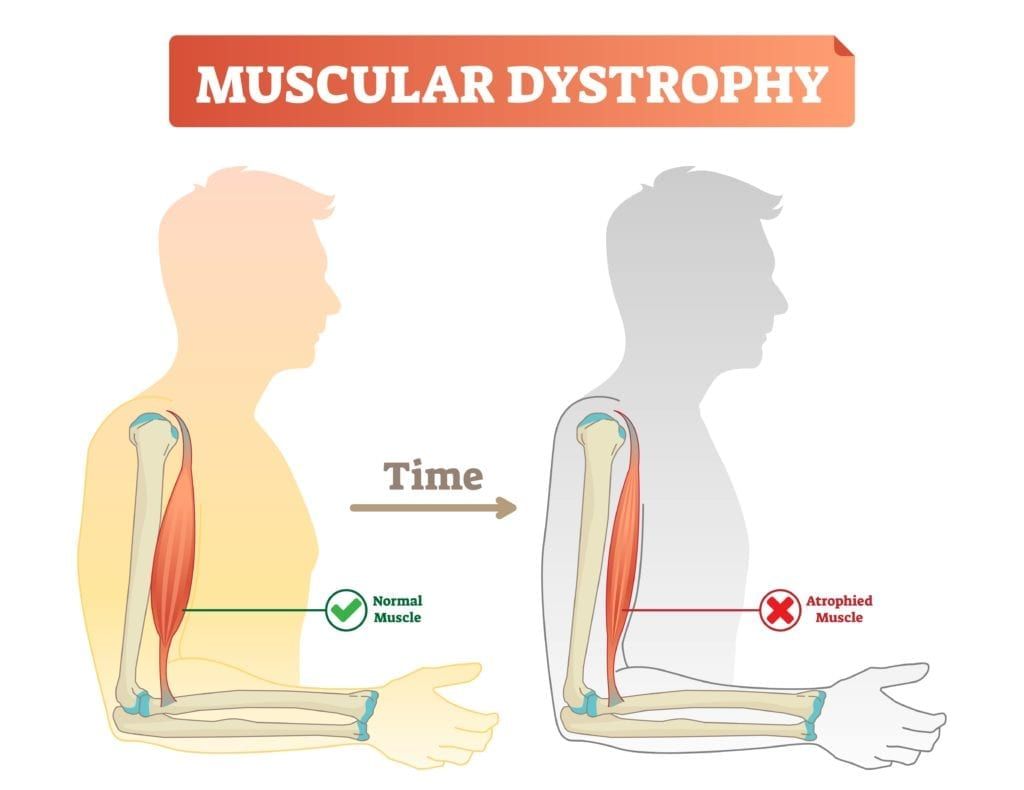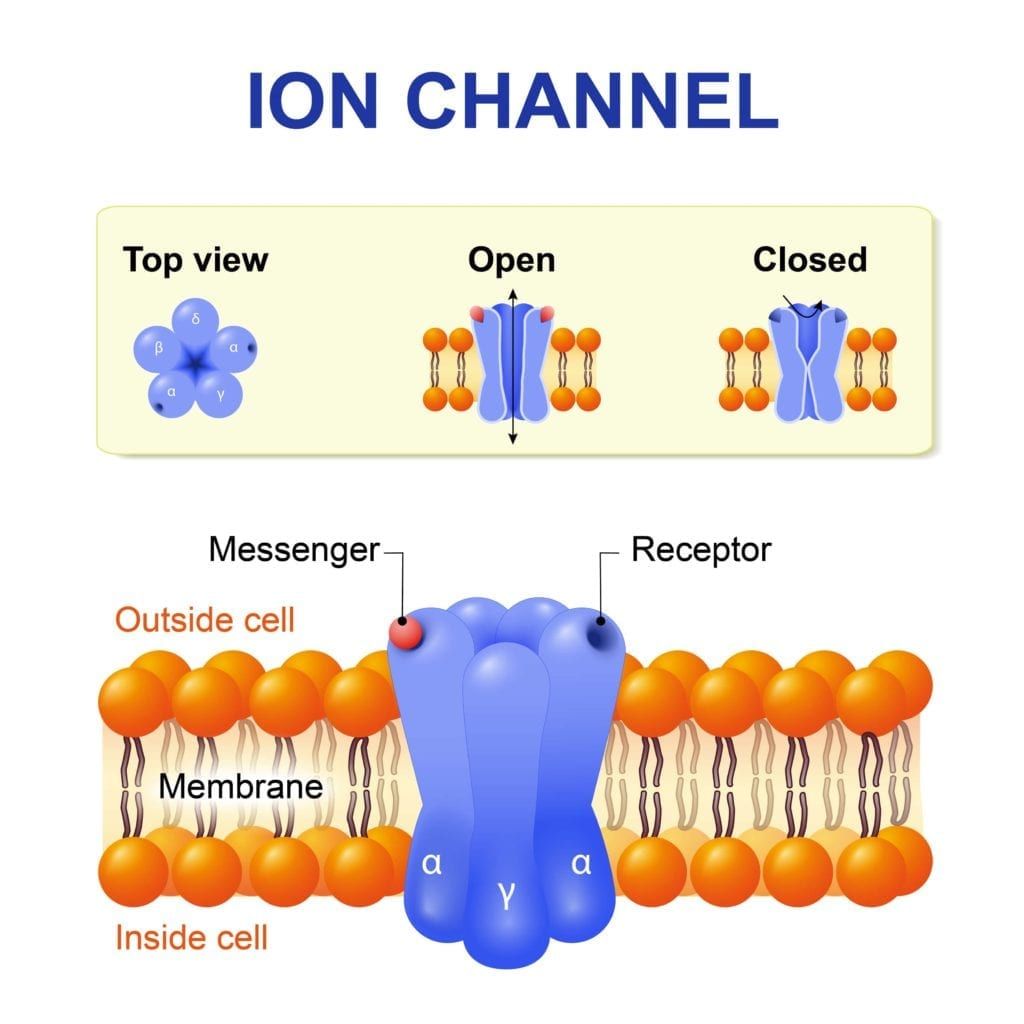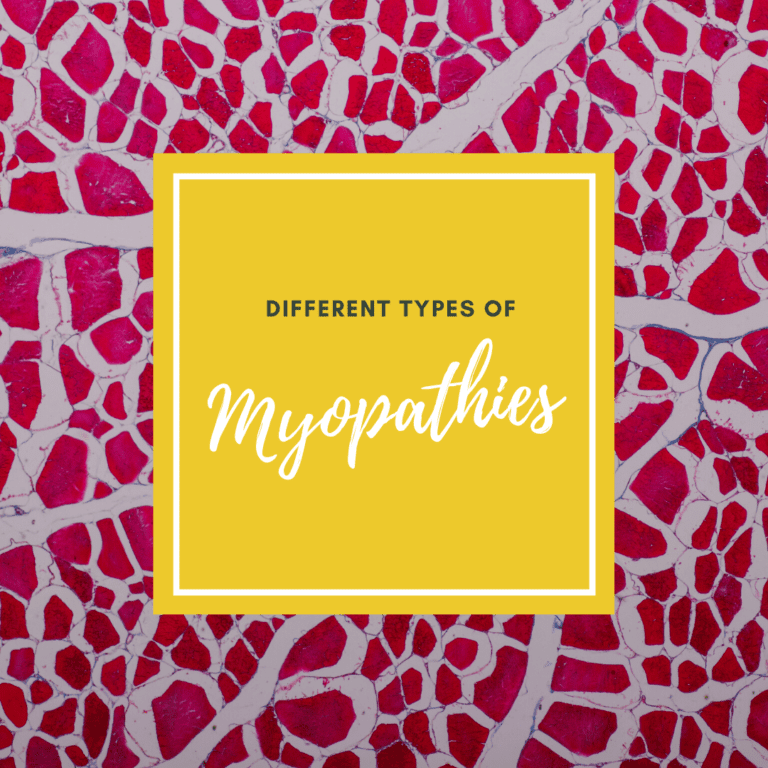Did you know that the word “myopathy” is made up of the Greek word “myo” meaning muscle and “pathos” meaning disease? Together, the word myopathy translates to muscle disease and this term is used to describe neuromuscular disorders that primarily cause muscle weakness due to dysfunctional muscle fibers responsible for voluntary motions. Along with muscle weakness, myopathies can also cause muscle cramps, stiffness, spasms, and pain or soreness. There are a variety of myopathies, however they can be broken down into two groups: hereditary and acquired myopathies.
Hereditary Myopathies
Like their name suggests, hereditary myopathies are inherited from an immediate family member. Hereditary myopathies that occur on the X chromosome tend to affect more men than women, while hereditary myopathies that occur on non-sex chromosomes affect men and women equally.
Muscular Dystrophies

Muscular dystrophies are characterized by a lack of protein called dystrophin. Since this protein is essential for normal muscle function, its absence causes muscle damage and weakness that causes problems with walking, swallowing, and muscle coordination.
Congenital Myopathy
Congenital myopathies are present at birth, however they may not be diagnosed until later in infancy or early childhood. They are caused by genetic abnormalities in the genes responsible for proper muscle development.
Metabolic Myopathy
Metabolic myopathies are characterized by an inability to properly convert food into energy. Specifically, individuals with metabolic myopathy lack a particular enzyme entirely or are deficient in an enzyme that is required for metabolism. Therefore, the end result is that the muscles are unable to function properly because they are not able to metabolize the required amount of energy.
Mitochondrial Myopathy
Mitochondrial myopathies are characterized by a variety of symptoms all over the body due to the fact that mitochondria exists in cells all over the body. These myopathies are caused by a genetic mutation that affects the cell’s blueprint for making the proteins associated with chemical energy for biochemical reactions. Since muscles require a large amount of energy to function properly, reduced energy will reduce their functionality.

Channelopathies
Channelopathies are caused by genetic mutations that impair the function of ion channel units, as well as the proteins responsible for regulating these channels.
Myotonia Congenita
Myotonia congenita is a type of channelopathy characterized by delayed muscle relaxation and stiffness. In some cases, the disease can even cause muscle enlargement and increased muscle strength. Myotonias are caused by a genetic defect in the genes associated with chloride channels. Chloride channels are used by the body to shut down the electrical activity responsible for muscle contraction. However in people with myotonias, the gene responsible for stopping the electrical activity is damaged, allowing muscle contraction to continue.
Acquired Myopathies
Inflammatory Myopathy
Inflammatory myopathies are characterized by autoimmune connective tissue disease that affects more than just the muscles. Symptoms can include weakness in the neck, shoulder, and hip muscles, as well as rashes and/or breathing problems. Some possible causes of inflammatory myopathies are inflammation in the body, infection, muscle injury, and inherited diseases.
Endocrine Myopathy
Endocrine myopathy is characterized by too much or too little hormone production from the thyroid. This eventually causes the muscles to become weak and atrophied, broken down, and affected by cramps and slow reflexes.
Toxic Myopathy
Toxic myopathy is characterized by weakness and other myopathy symptoms that come on suddenly. It is caused by certain drugs and toxins, and the “statins” found in cholesterol drugs are a common cause. In most cases, patients will recover from toxic myopathy once they discontinue the medication responsible for causing the myopathy.

Dr. Kashouty, a diplomate of the American Board of Psychiatry and Neurology (ABPN), practices general neurology with fellowship trained specialization in clinical neurophysiology. Dr. Kashouty finds the form and function of the nerves and muscles the most interesting part of neurology, which is what led him to specialize in neurophysiology with more emphasis on neuromuscular conditions. He treats all neurological diseases, but his main focus is to treat and manage headaches, movement disorders and neuromuscular diseases.




